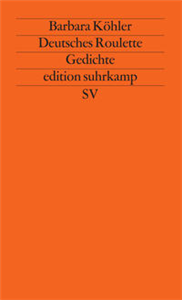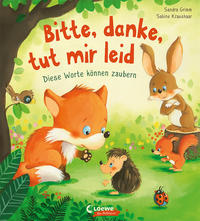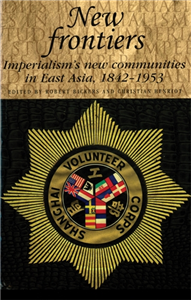Your Search Results
-
Promoted Content
-
Promoted Content
-
 Trusted Partner
Trusted Partner
-
 Trusted Partner
May 1997
Trusted Partner
May 1997Gesammelte Olivenkerne
Aus dem Tagebuch der Fremde
by Schami, Rafik / Illustriert von Leeb, Root
-
 Trusted Partner
August 1997
Trusted Partner
August 1997Die Sehnsucht fährt schwarz
Geschichten aus der Fremde
by Schami, Rafik / Illustriert von Leeb, Root
-
 Trusted Partner
August 1997
Trusted Partner
August 1997Der Fliegenmelker
Geschichten aus Damaskus
by Schami, Rafik / Illustriert von Leeb, Root
-
 Trusted Partner
February 1991
Trusted Partner
February 1991Deutsches Roulette
Gedichte. 1984–1989
by Barbara Köhler
Die Geschlechter, die Sprache - und die Geschichte sind in Barbara Köhlers Gedichten Deutsches Roulette bedrängend allgegenwärtig: Geschichtslandschaften um Dresden und vor allem die Elbe, der stinkende ehemalige Grenzfluß.
-
 Trusted Partner
June 2022
Trusted Partner
June 2022Bitte, danke, tut mir leid
Diese Worte können zaubern
by Sandra Grimm / Sabine Kraushaar
Please, thank you, I'm sorry! These words can work magic Here you go and thank you very much! A flap book about good manners: not everyone is perfect, but it is important to be considerate of each other. The little fox child Fuzzy is excited: the animals in the forest are having a party and there will be cake, presents and a treasure hunt. Fuzzy has a sweet tooth and chows and chows, tears up his present, and would prefer to keep the treasure for himself. "Don't spill and make a mess," Ria Rabbit admonishes. And Sami Sparrow says, "You can't have it all to yourself." The fox child begins to ponder. True, that wasn't nice at all. But there's one thing that Fuzzy is particularly good at: listening! And all the other animals can learn something from that, too. Important message for kindergarten: promoting social behavior Gender-neutral protagonist: appeals equally to boys and girls Charming story and lovable characters Extra-large flaps on every double page A new picture book by success team Sandra Grimm and Sabine Kraushaar (What's in your diaper?)
-
 Trusted Partner
Trusted Partner
-
Lifestyle, Sport & LeisureMarch 1905
Dogs and All about Them
by Robert Leighton
The popularity of the dog as a companion, as a guardian of property, as an assistant in the pursuit of game, and as the object of a pleasurable hobby, has never been so great as it is at the present time.
-
 Trusted Partner
Trusted Partner
-
 Trusted Partner
Trusted Partner
-
 Trusted Partner
Trusted Partner
-
 Trusted Partner
Trusted Partner
-
 Trusted Partner
October 2000
Trusted Partner
October 2000Alzheimer Roulette. Die Frauenfalle
Stücke und Materialien
by Friedrich-Karl Praetorius
-
 Trusted Partner
Humanities & Social SciencesJanuary 2024
Trusted Partner
Humanities & Social SciencesJanuary 2024Dog politics
Species stories and the animal sciences
by Mariam Motamedi Fraser
Do dogs belong with humans? Scientific accounts of dogs' 'species story,' in which contemporary dog-human relations are naturalised with reference to dogs' evolutionary becoming, suggest that they do. Dog politics dissects this story. This book offers a rich empirical analysis and critique of the development and consolidation of dogs' species story in science, asking what evidence exists to support it, and what practical consequences, for dogs, follow from it. It explores how this story is woven into broader scientific shifts in understandings of species, animals, and animal behaviours, and how such shifts were informed by and informed transformative political events, including slavery and colonialism, the Second World War and its aftermath, and the emergence of anti-racist movements in the twentieth and twenty-first centuries. The book pays particular attention to how species-thinking bears on 'race,' racism, and individuals.
-
 Trusted Partner
Humanities & Social SciencesNovember 2012
Trusted Partner
Humanities & Social SciencesNovember 2012New frontiers
Imperialism's new communities in East Asia, 1842–1953
by Robert Bickers, Andrew Thompson, Christian Henriot, John Mackenzie
In the new world order mapped out by Japanese and Western imperialism in East Asia after the mid-nineteenth century opium wars, communities of merchants and settlers took root in China and Korea. New identities were constructed, new modes of collaboration formed and new boundaries between the indigenous and foreign communities were literally and figuratively established. Newly available in paperback, this pioneering and comparative study of Western and Japanese imperialism examines European, American and Japanese communities in China and Korea, and challenges received notions of agency and collaboration by also looking at the roles in China of British and Japanese colonial subjects from Korea, Taiwan and India, and at Chinese Christians and White Russian refugees. This volume will be of interest to students and scholars of the history and anthropology of imperialism, colonialism's culture and East Asian history, as well as contemporary Asian affairs. ;
-
 Trusted Partner
Humanities & Social SciencesMarch 2017
Trusted Partner
Humanities & Social SciencesMarch 2017New frontiers
Imperialism's new communities in East Asia, 1842–1953
by Robert Bickers, Christian Henriot
In the new world order mapped out by Japanese and Western imperialism in East Asia after the mid-nineteenth century opium wars, communities of merchants and settlers took root in China and Korea. New identities were constructed, new modes of collaboration formed and new boundaries between the indigenous and foreign communities were literally and figuratively established. Newly available in paperback, this pioneering and comparative study of Western and Japanese imperialism examines European, American and Japanese communities in China and Korea, and challenges received notions of agency and collaboration by also looking at the roles in China of British and Japanese colonial subjects from Korea, Taiwan and India, and at Chinese Christians and White Russian refugees. This volume will be of interest to students and scholars of the history and anthropology of imperialism, colonialism's culture and East Asian history, as well as contemporary Asian affairs.
-
 Trusted Partner
Political ideologiesFebruary 2014
Trusted Partner
Political ideologiesFebruary 2014The IRA 1956–69
Rethinking the Republic
by Matt Treacy
While there have been many books written about the IRA since 1916, comparatively little attention has been paid to the organisation during the 1960s, despite the fact that the internal divisions culminating in the 1969 split are often seen as key to the conflict which erupted that year. This book, newly available in paperback, redresses that vacuum and through an exhaustive survey of internal and official sources, as well as interviews with key IRA members, provides a unique and fascinating insight into radical Republican politics which will be of interest to those interested in Irish history and politics. The author looks at the root of the divisions which centred on conflicting attitudes within the IRA on armed struggle, electoral participation and socialism. He argues that while the IRA did not consciously plan the northern 'Troubles', the internal debate of the 1960s had implications for what happened in 1969.
-
 Trusted Partner
Humanities & Social Sciences
Trusted Partner
Humanities & Social SciencesA Guilty Conscience – Nuisance or Asset?
by Maja Storch, Gerhard Roth
A guilty conscience can be a real nuisance. There is simply no rest and you can’t just turn it off through rational thought. Psychologically, in psychotherapy, advising and coaching, a guilty conscience is one of the most persistent and difficult symptoms to pin down. Maja Storch and Gerhard Roth ask the questions: why feelings of guilt are so prolonged and how to deal with them. Gerhard Roth explains which components of the human brain, over the course of its development, give rise to a phenomenon as complex as a guilty conscience. Using three practical and easily understandable examples, Maja Storch presents a system for everyday use which can be used to get to the root of your own guilty conscience and to develop a plan for dealing with it. For:• wide audience• therapists• coaches
































